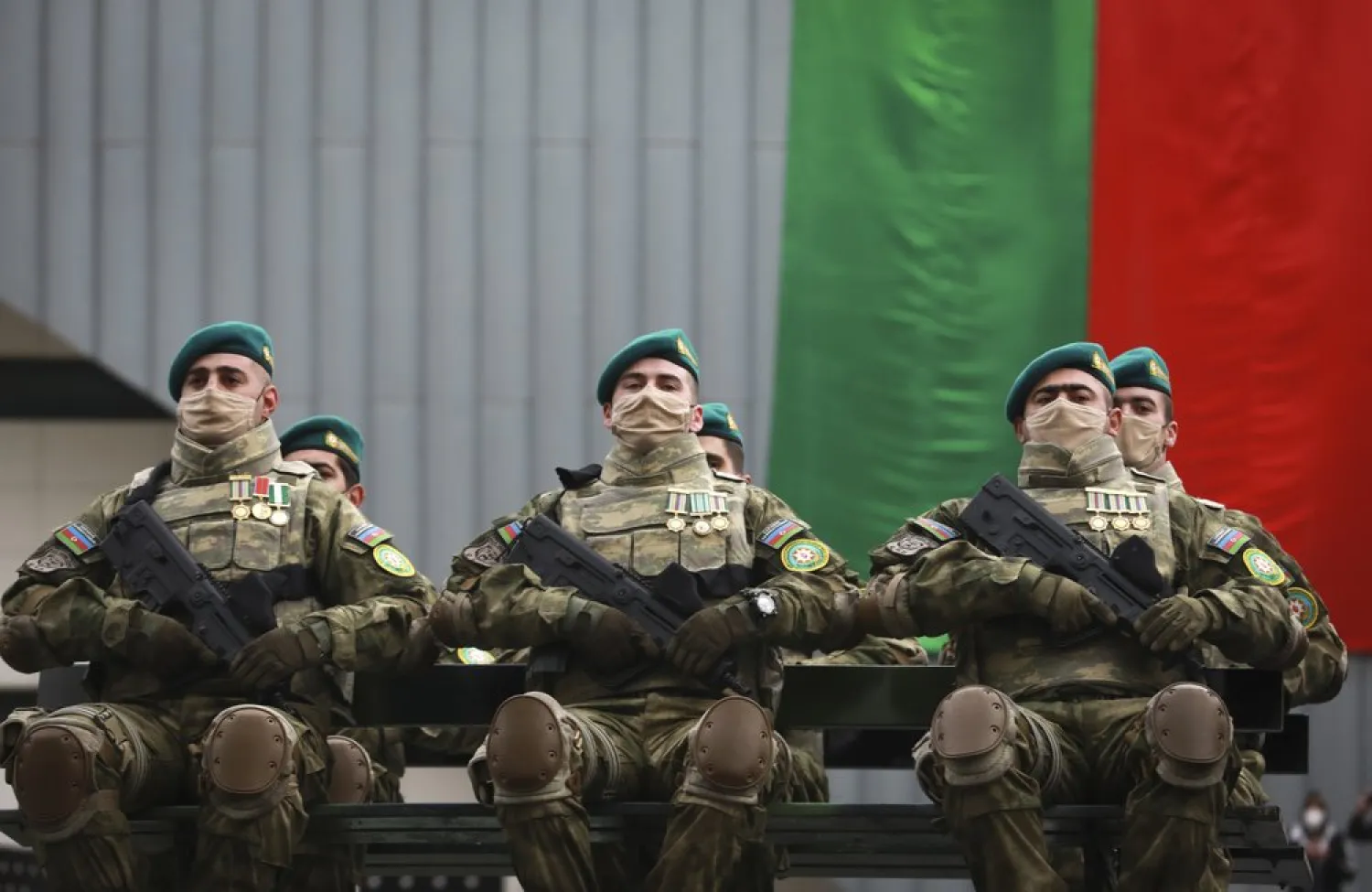Armenian officials and Azerbaijan on Saturday accused each other of breaching a peace deal that ended six weeks of fierce fighting over Nagorno-Karabakh, and Azerbaijan’s leader threatened to crush Armenian forces with an “iron fist.”
The new clashes mark the first significant breach of the peace deal brokered by Russia on Nov. 10 that saw Azerbaijan reclaim control over broad swathes of Nagorno-Karabakh and surrounding lands which were held by Armenian forces for more than a quarter-century.
Separatist officials in Nagorno-Karabakh said the Azerbaijani military launched an attack late Friday that left three local ethnic Armenian servicemen wounded.
Russian peacekeepers deployed to the region to monitor the peace deal reported a violation of the ceasefire in the Gadrut region on Friday. The report issued Saturday by the Russian Defense Ministry didn’t assign blame.
Later in the day, the Armenian Defense Ministry also charged that the Azerbaijani army mounted an attack in the south of Nagorno-Karabakh on Saturday.
Azerbaijani President Ilham Aliyev reacted on Saturday by blaming Armenia for the new clashes and threatened to “break its head with an iron fist.”
“Armenia shouldn’t try to start it all over again,” Aliyev said during a meeting with top diplomats from the United States and France who have tried to mediate the decades-old conflict. “It must be very cautious and not plan any military action. This time, we will fully destroy them. It mustn’t be a secret to anyone.”
Nagorno-Karabakh lies within Azerbaijan but was under the control of ethnic Armenian forces backed by Armenia since a separatist war there ended in 1994. That war left Nagorno-Karabakh itself and substantial surrounding territory in Armenian hands.
In 44 days of fighting that began in late September and left more than 5,600 people killed on both sides, the Azerbaijani army pushed deep into Nagorno-Karabakh, forcing Armenia to accept last month’s peace deal that saw Azerbaijan reclaim much of the separatist region along with surrounding areas. Russia deployed nearly 2,000 peacekeepers for at least five years to monitor the peace deal and to facilitate the return of refugees.
Azerbaijan marked its victory with a military parade on Thursday that was attended by Turkish President Recep Tayyip Erdogan and involved more than 3,000 troops, dozens of military vehicles, and a flyby of combat aircraft.
The peace deal was a major shock for Armenians, triggering protests calling for the resignation of Prime Minister Nikola Pashinyan, who has refused to step down. He described the peace agreement as a bitter but necessary move that prevented Azerbaijan from taking over all of Nagorno-Karabakh.









